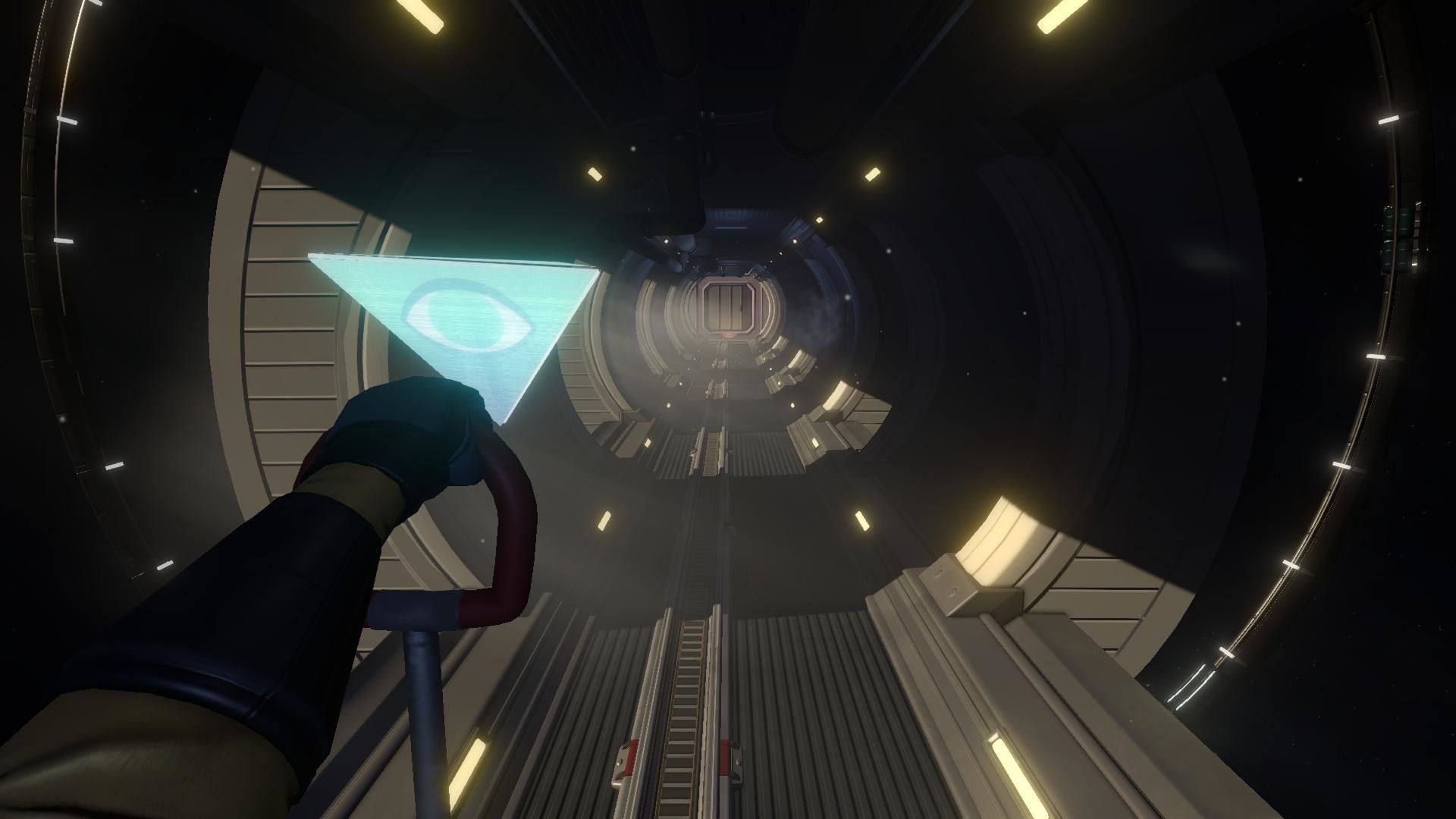So does Tacoma successfully transplant the magic that made Gone Home so popular into orbit, or has the charm gotten lost in space? Find out in our Tacoma review.
Tacoma: Price and availability
Tacoma is out worldwide from 2 August 2017 for £14.99/$19.99. It’s a console exclusive for Xbox One, but is also out on Windows, Mac, and Linux. There’s no physical retail release, so the best bet for Xbox players is to grab the game from the official Xbox store. If you want to grab it for one of the PC platforms, your options are Steam or GOG, where you can pick it up without any DRM (digital rights management) software.
Tacoma review
So, what is Tacoma? It’s a first-person narrative exploration game set aboard a space station named, well, Tacoma. Tacoma is manned by a crew of six together with an A.I., except that by the time you get there, the crew are gone in the wake of an accident that crippled the station’s life support, and you play as a contractor sent by the Venturis corporation to retrieve the station A.I., Odin. That means travelling through the ship’s three main sections – personnel, biomedical, and engineering – to download Odin, but along the way you get a bit of time to explore – even if it seems like the company would really rather you didn’t. It’s not really the space station itself that’s interesting to explore however (though the view outside the frequent windows never get old), as it’s the lives of the six inhabitants that are the real appeal, made accessible to you thanks to Venturis’s use of an augmented reality (AR) system to record their every move. What that means is that you can experience a selection of moments from the crew’s past by accessing the AR data. These aren’t mere audio-diaries though – instead they’re interactive AR audio-diaries, complete with holographic representations of the crew involved that look like colourful wire-frame models. This has a few big effects. For one, there are puzzles to be solved by watching the holograms closely, like catching the keycode they enter to get past a locked door. More importantly though, you can follow each character around separately, exploring any given scene from multiple angles, rewinding and fast-forwarding to make sure you don’t miss anything. All of this is crucial not only to unpacking exactly what happened in the wake of the accident – and why – but also getting to know the crew themselves, from romantic relationships to personal trauma, their political views to their taste in music. The AR recordings cover quiet personal moments as much as they do the big sci-fi story, and the world is packed with little details that reveal more. The crew are a well-rounded bunch, with diverse backstories and motivations, and varied inter-personal dynamics between them. They’re refreshingly diverse in another sense too – they hail from across the world, and cover a selection of different ethnicities, religions, and sexualities – there are even five women to two men out of the game’s seven core human characters. All that’s not to say that Tacoma neglects its more grandiose side, and Fullbright has made the most of the new setting to tell a story with a scope that Gone Home’s domestic surroundings just couldn’t allow. Workers’ rights, A.I. personhood, and corporatisation all get a look-in, and while they’re undeniably well-worn topics Tacoma’s script finds the space for a few new reflections on them. Grand as these concepts may be, Tacoma is unceasing in its efforts to relate them back to the crew, grounding the philosophical in the personal by returning again and again to the human cost of the game’s vision of the future. It’s not all perfect. At three hours Tacoma feels undeniably slight for the £15/$20 price tag, and there’s not much in the way of replay value. By splitting its attention amongst the crew it also loses some of the punchy emotional power of Gone Home – this is a smarter game than Fullbright’s debut, but it’s lost a little of its heart along the way.


